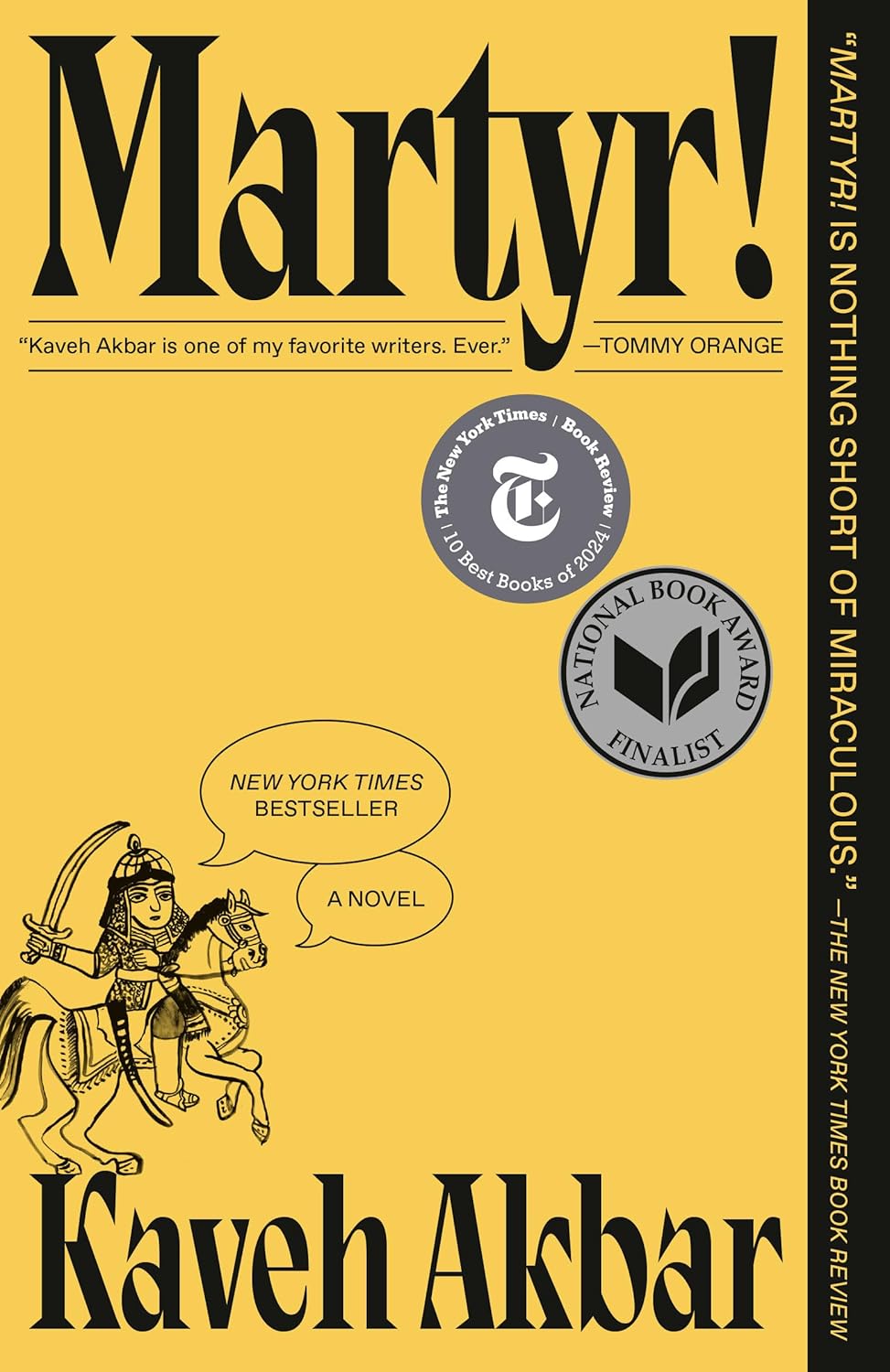
Martyr!
Chapter Twenty-nine
by Kaveh AkbarThe chapter “Orkideh, Martyr!” reflects on the narrator’s life through a lens of gratitude and acceptance. Despite acknowledging that happiness was not a constant state, the speaker emphasizes experiencing profound joy, particularly during moments shared with Leila. This perspective challenges conventional notions of tragedy, suggesting that even a life cut short can be rich in meaning if it contained genuine happiness. The tone is introspective yet defiant, rejecting pity in favor of celebrating the beauty that existed.
Central to the chapter is the idea that joy may be finite and unevenly distributed across a lifetime. The narrator speculates that they might have “used up” their allotted happiness quickly, but this does not diminish its value. The relationship with Leila emerges as a defining source of this joy, serving as an emotional anchor in the narrator’s recollections. This viewpoint transforms what could be seen as a tragic narrative into one of fulfillment and completion.
The chapter notably redefines the concept of tragedy, arguing that true tragedy lacks redemption or meaningful moments. By contrast, the narrator’s life—while perhaps brief—contained enough love and joy to render it complete. This philosophical stance elevates personal experience over societal expectations of longevity, suggesting quality of moments matters more than quantity. The prose carries a quiet dignity that underscores this conviction.
In its closing thoughts, the chapter arrives at a place of peaceful acceptance. The narrator explicitly states that no one could ask for more than what they’ve experienced, demonstrating remarkable contentment with life’s offerings. This resolution provides emotional closure while leaving room for readers to reflect on their own measures of a life well-lived. The chapter ultimately serves as a meditation on finding meaning in transient happiness rather than dwelling on its cessation.
FAQs
1. How does the narrator describe their experience of happiness in this chapter?
Answer:
The narrator reflects on having experienced “real, deep joy” despite not being happy always or even mostly. They suggest that happiness might be a finite resource allocated over a lifetime, and that they may have used their “lifetime’s allotment” quickly during their time with Leila. Importantly, the narrator rejects framing their life as a tragedy, noting that tragedies are relentless, and instead expresses gratitude for what they’ve had. This nuanced perspective shows happiness as intense but fleeting moments rather than a sustained state.2. What literary device is prominent in the phrase “I just used my lifetime’s allotment especially quickly,” and how does it contribute to the narrator’s message?
Answer:
The phrase employs metaphor, comparing happiness to a finite resource that can be “used up.” This device reinforces the narrator’s philosophical reflection on the nature of joy - suggesting it’s both precious and limited. The metaphor deepens our understanding of their perspective: that profound happiness may come in concentrated bursts rather than continuous supply, and that having experienced it intensely (even briefly) makes a life meaningful rather than tragic.3. Why does the narrator specifically contrast their life experience with the concept of tragedy?
Answer:
The narrator draws this distinction to challenge conventional narratives that might label their story as tragic. By defining tragedies as “relentless” and asserting that “nobody could ask for more than what I’ve had,” they reframe their life’s value through the lens of quality rather than duration or conventional success. This reflects a mature perspective that finds meaning in moments of deep connection (with Leila) rather than measuring life by continuous happiness or traditional happy endings.4. How might the narrator’s perspective on happiness influence how readers evaluate their own life experiences?
Answer:
The narrator’s view invites readers to reconsider how they quantify happiness - not by its constant presence but by its depth and significance in particular moments. By valuing intense joy with Leila above sustained mediocre contentment, the passage suggests we might treasure peak emotional experiences rather than lamenting their brevity. This could encourage readers to identify and appreciate their own “allotments” of profound happiness rather than chasing perpetual satisfaction.
Quotes
1. “What I want to say is that I was happy. Not always, not even mostly. But I did know real, deep joy.”
This opening reflection captures the narrator’s complex perspective on their life experience, acknowledging both hardship and profound happiness. It establishes the chapter’s central theme of finding meaning in life’s fleeting moments of joy.
2. “Maybe everyone gets a certain amount to use up over a lifetime, and I just used my lifetime’s allotment especially quickly, with Leila.”
This metaphorical statement reveals the narrator’s philosophy about the distribution of happiness in life, particularly highlighting the intensity of their relationship with Leila. It suggests a bittersweet acceptance of life’s impermanence.
3. “But I don’t think it was a tragedy, my life. Tragedies are relentless. Nobody could ask for more than what I’ve had.”
This powerful conclusion challenges conventional notions of tragedy and demonstrates the narrator’s ultimate acceptance and gratitude for their life’s experiences. It serves as a profound statement about finding value in one’s personal journey.
